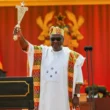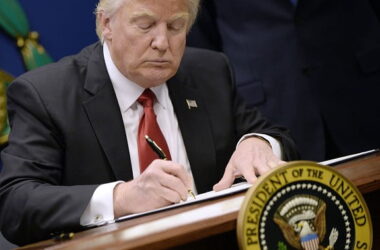The Nigerian Armed Forces have implemented stringent guidelines to ensure discipline and maintain ethical conduct among military personnel.
These regulations, sanctioned by President Bola Tinubu, were formalized in the revised Harmonised Armed Forces Terms and Conditions of Service, signed on December 16, 2024.
The updated guidelines explicitly ban acts such as homosexuality, lesbianism, bestiality, and cross-dressing. The document states, “An officer must not engage in homosexuality, lesbianism, and bestiality. He/she is not to belong to, or engage in activities of the Lesbian, Gay, Bisexual, Transgender or Trans, Queer or Questioning, Intersex, Asexual or Agender, Two-Spirit (LGBTQIA2S+) group and cross-dressing, amongst others.”
The revised terms of service extend beyond matters of sexual orientation and gender identity. Military personnel are also barred from engaging in body piercing, tattooing, disorderly behavior, and drunkenness—whether on or off duty. These prohibitions aim to uphold the image of the armed forces as disciplined and respectable.
The document further emphasizes the importance of avoiding public misconduct, stating, “An officer shall not engage in any form of disorderly behavior, brawl, or any action of public disgrace. An officer must not at any time be drunk whether on or off duty.”
Military personnel are also restricted from engaging in romantic or intimate relationships with subordinates or the spouses of their colleagues.
According to the terms, “An officer shall not engage in any amorous relationship with any soldier/rating/airman/airwoman, fellow officer’s or soldier’s/rating’s/airmen’s/airwomen’s spouse.”
The document also highlights the necessity of meeting financial obligations, such as timely payment of vehicle licenses and insurance. Personnel who fail to meet these obligations or issue dud cheques will face disciplinary action.
Membership in secret societies or political parties is strictly forbidden. The document clarifies, “An officer shall not hold membership of any secret society or political party. He shall not participate, in any way, in activities concerned with such societies or parties even in observatory capacities.”
However, it makes exceptions for cultural or traditional religious societies, provided their activities are not secretive in nature.
The updated rules prohibit military personnel from engaging in private business ventures or misusing government property for personal gain. The terms specify that officers cannot use their rank, position, or government resources to pursue commercial interests, whether or not these activities interfere with their official duties.
Additionally, the acceptance of gifts, favors, or entertainment from junior-ranking officers or enlisted personnel is strictly prohibited. This measure is intended to prevent favoritism, corruption, and undue influence within the military hierarchy.









